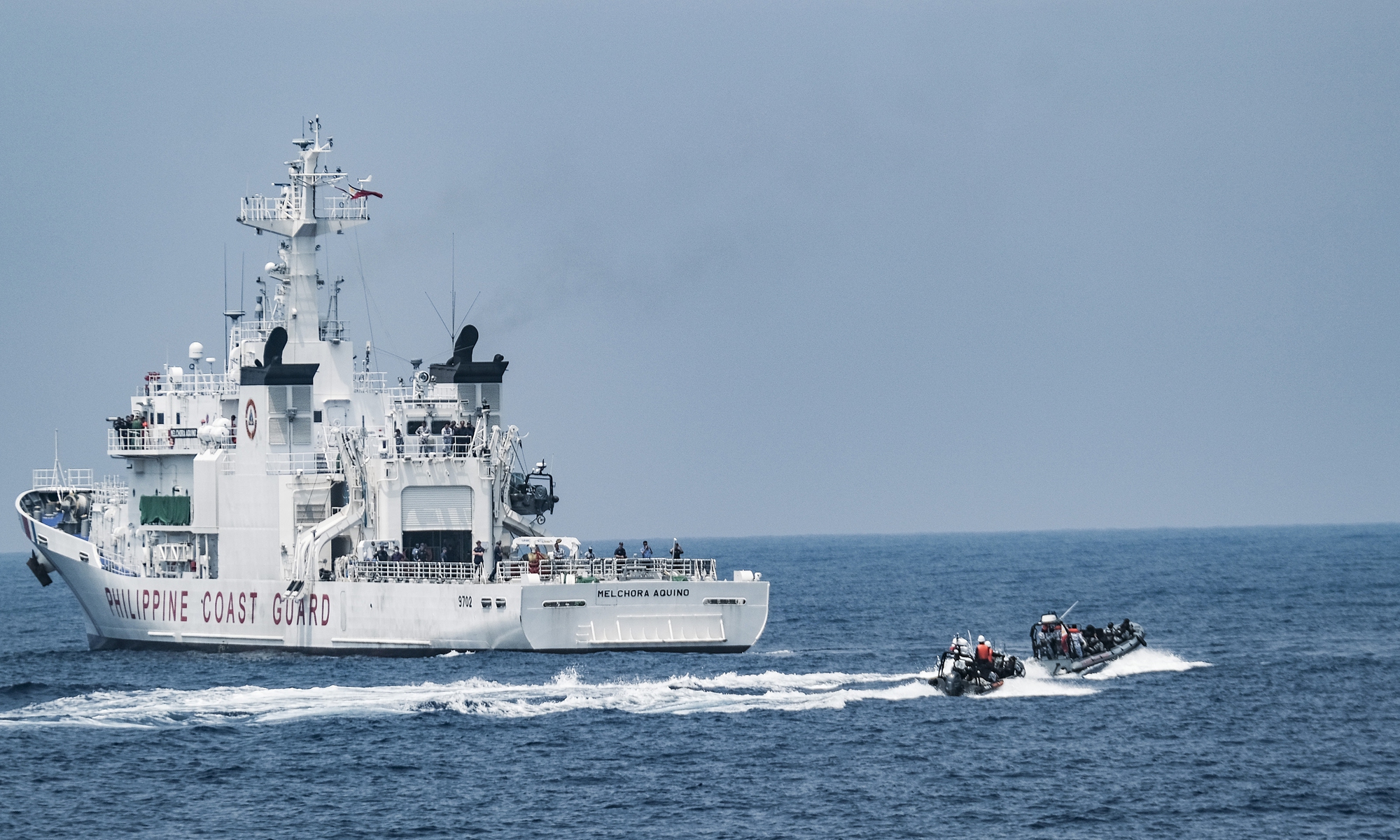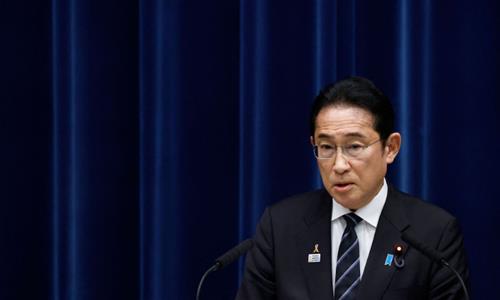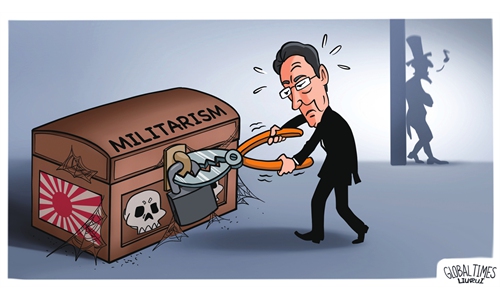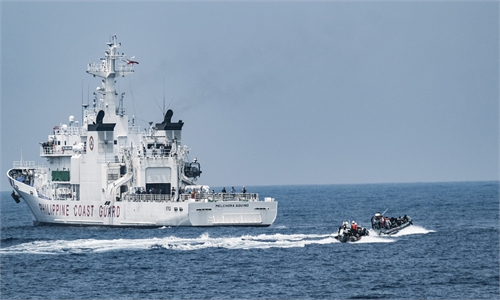Japan-Australia security talks detrimental to regional stability, world peace: experts

The US, Japan and the Philippines stage a trilateral Coast Guard drill on June 6, 2023. Photo: VCG
With multiple references to China-related issues, Japan and Australia vowed to bolster military ties to cope with an increasingly complex regional situation during their "two-plus-two" security meeting in Australia on Thursday, which Chinese observers warn would jeopardize peace and stability in the Asia-Pacific region and raise deep concerns among regional countries.
The bilateral security talks, this time in Australia two years after the two allies held such meetings in Tokyo, apparently seek forming a collaboration network in the region backed by the US, with China seen as the main target, observers pointed out.
China believes that defense and security cooperation between countries should be conducive to keeping the region peaceful and stable and nurturing mutual trust between regional countries, and should not target any third party, said Mao Ning, spokesperson for the Chinese Foreign Ministry, on Thursday's press briefing.
Chinese observers pointed out the irony of the two countries' collusion in recent years, citing history during World War II (WWII) when Japan was both an aggressor and a defeated nation while Australia was involved in the Pacific War against Japan.
Currently, Japan is increasingly eager to align itself with the US and other allies like Australia and South Korea, particularly as it seeks to pursue the path of a "normal country," which threatens to undermine the post-WWII international order, said Lü Chao, a research fellow at the Liaoning Academy of Social Sciences.
The promotion of Japan-Australia cooperation came as the US launched the so-called Indo-Pacific Strategy and stepped up its pressure to push forward coordination among allies and partners in an attempt to contain China and undermine its peaceful development, said Chen Hong, executive director of Asia Pacific Studies Centre at East China Normal University.




